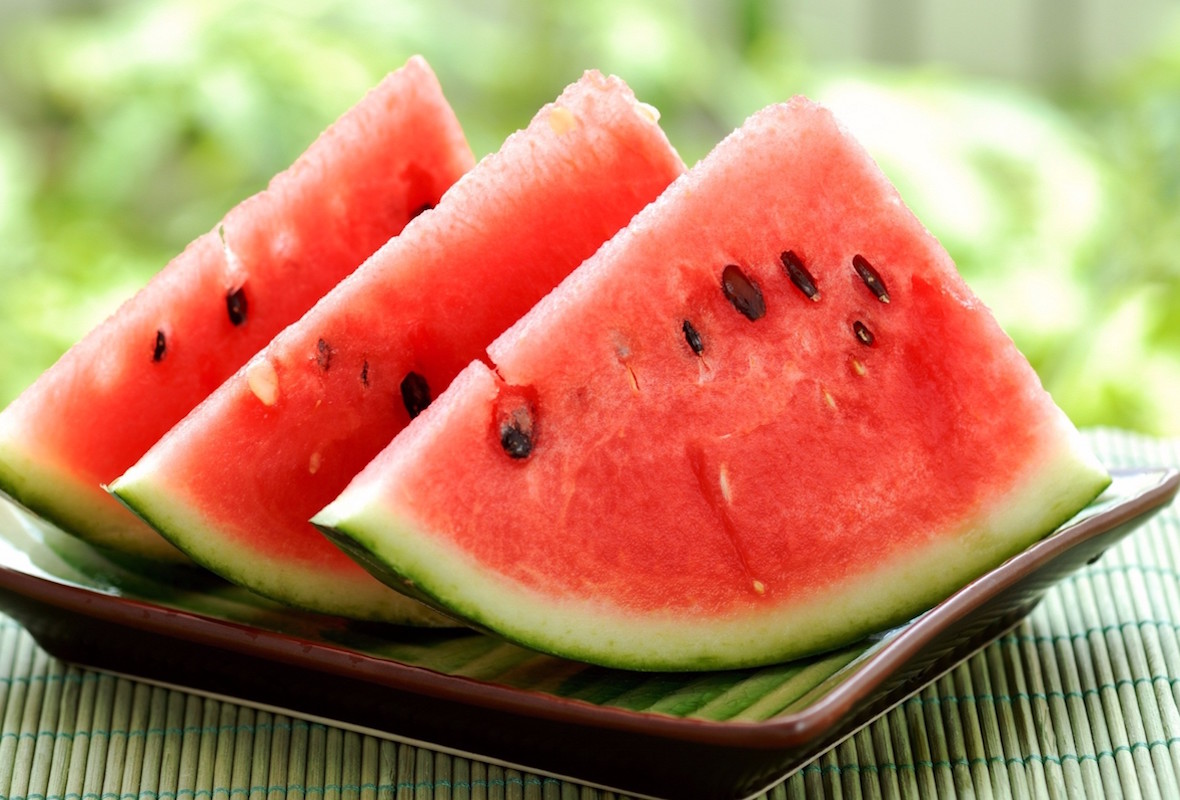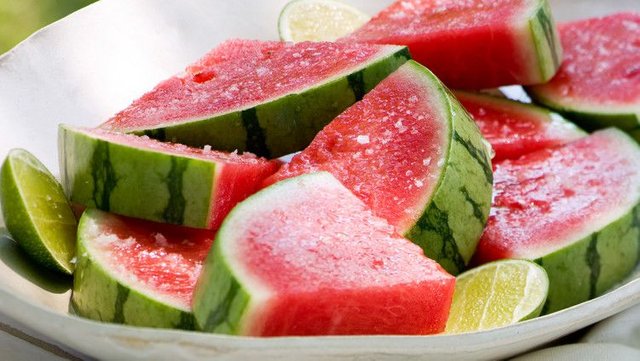the Watermelon Diet for Weight Loss

Are you tired of trying fad diets that promise quick weight loss but leave you feeling hungry and unsatisfied? Look no further than the watermelon diet. This refreshing and nutritious fruit has gained popularity as a weight loss tool due to its high water content and low calorie count.
In this comprehensive guide, we will explore what the watermelon diet is, its benefits and potential risks, how to follow it, and expert opinions on its effectiveness. Whether you are looking to shed a few pounds or jumpstart a healthier lifestyle, the watermelon diet may be just what you need.

What is the Watermelon Diet?
The watermelon diet is a short-term weight loss plan that involves eating primarily watermelon for a set period of time. It is typically a 5-day diet but can be extended up to 10 days. During this time, participants consume a specific amount of watermelon each day, along with other nutritious foods such as lean proteins, vegetables, and healthy fats. The goal of this diet is to promote rapid weight loss by restricting calories and increasing hydration.
Origin of the Watermelon Diet
The origins of the watermelon diet are unclear, but it gained popularity in recent years due to claims of its effectiveness for quick weight loss. Some sources suggest that the idea of the watermelon diet originated in South Korea, where watermelon is a popular summer fruit. However, there is no scientific evidence to support these claims.
Benefits of the Watermelon Diet
- Promotes Hydration Watermelon is composed of over 90% water, making it an excellent source of hydration. Many people struggle to meet their daily recommended intake of water, which can lead to dehydration and potential health problems. By following the watermelon diet, individuals can increase their fluid intake and stay hydrated.
- Low in Calories With only 46 calories per cup, watermelon is an ideal food for weight loss. It is low in calories but high in nutrients, making it a great choice for those looking to lose weight without feeling deprived.

- Rich in Nutrients Watermelon is not only low in calories but also rich in essential vitamins and minerals. It is a good source of vitamin C, which boosts immune function and collagen production. It also contains significant amounts of vitamin A, potassium, and magnesium, all of which play important roles in maintaining overall health.
- Fills You Up Due to its high water and fiber content, watermelon can help you feel full and satisfied, even on a calorie-restricted diet. This can prevent overeating and snacking, leading to weight loss.
- May Improve Heart Health According to a study published in the American Journal of Hypertension, consuming watermelon daily may help lower blood pressure and improve cardiovascular health. This is due to its high levels of citrulline, an amino acid that helps relax blood vessels and improve blood flow.
How to Follow the Watermelon Diet
To follow the watermelon diet, you will need to purchase a good quality watermelon, preferably organic. The general guidelines for this diet are as follows:

- Determine Your Caloric Needs Before starting any diet, it is essential to know your caloric needs based on factors such as age, gender, height, and activity level. You can use an online calculator or consult a registered dietitian to determine your daily calorie requirement.
- Plan Your Meals The next step is to plan your meals for the duration of the diet. The main component of each meal will be watermelon, but you should also incorporate other nutritious foods to meet your daily calorie needs. A sample meal plan can be found in the next section of this guide.
- Set a Timeframe Decide how many days you want to follow the watermelon diet. As mentioned earlier, it is typically a 5-day diet but can be extended up to 10 days. It is not recommended to follow this diet for more than two weeks.
- Stick to the Guidelines During the designated time frame, consume the recommended amount of watermelon each day, along with other nutritious foods. Avoid processed and high-calorie foods, and make sure to stay hydrated by drinking plenty of water throughout the day.
- Consult a Physician Before starting any new diet, it is important to consult your physician, especially if you have any medical conditions or are taking medication. They can advise you on whether the watermelon diet is suitable for you and provide any necessary modifications.

Potential Risks of the Watermelon Diet
While the watermelon diet may offer some benefits, there are also potential risks to consider before embarking on this eating plan.
- Nutrient Deficiencies As with any restrictive diet, there is a risk of nutrient deficiencies. By focusing solely on consuming watermelon, you may miss out on essential nutrients found in other food groups. It is crucial to ensure that you are getting enough protein, healthy fats, and vitamins and minerals during this diet.
- Not Sustainable The watermelon diet is a short-term weight loss plan and is not sustainable as a long-term lifestyle. Once you return to your regular eating habits, you may regain the weight you lost. It is essential to maintain a balanced and healthy diet to achieve long-term weight loss success.
- Potential for Binge Eating Restricting calories and food groups may lead to binge eating once the diet is over. This can result in rapid weight gain and a negative relationship with food. If you tend to have disordered eating patterns, the watermelon diet may not be suitable for you.

Watermelon Diet vs. Other Popular Diets
There are countless weight loss diets out there, each with its own set of rules and restrictions. Here is a comparison between the watermelon diet and other popular diets to help you understand how they differ.
- Watermelon Diet vs. Keto Diet The keto diet involves eating high-fat, moderate protein, and very low carbohydrate foods. By drastically reducing carb intake, the body enters a state of ketosis, where it burns fat for energy instead of glucose. The watermelon diet, on the other hand, is low in fat and protein and focuses on consuming mostly watermelon and other nutritious foods.
- Watermelon Diet vs. Intermittent Fasting Intermittent fasting involves alternating periods of fasting and eating. This can be done in various ways, such as the 16/8 method, where you fast for 16 hours and eat during an 8-hour window. While intermittent fasting does not restrict specific food groups, the watermelon diet focuses on consuming primarily watermelon for a certain period of time.
- Watermelon Diet vs. Mediterranean Diet The Mediterranean diet is a balanced eating plan that emphasizes whole, unprocessed foods, including fruits, vegetables, whole grains, healthy fats, and lean proteins. It is also rich in seafood and limits red meat consumption. In comparison, the watermelon diet is more restrictive and focuses mainly on one food group.

Tips for Success on the Watermelon Diet
- Plan Ahead Before starting the watermelon diet, make sure to plan your meals and purchase all necessary ingredients. This will help you stick to the guidelines and avoid any last-minute temptations.
- Stay Hydrated While following the watermelon diet, it is crucial to stay hydrated by drinking plenty of water throughout the day. You can also incorporate other hydrating foods, such as cucumbers and lettuce, into your meals.
- Add Variety Eating only watermelon can become monotonous and may lead to cravings. To avoid this, add variety to your meals by incorporating other fruits and vegetables into your diet. This will help ensure that you are getting a balanced intake of nutrients.
- Include Protein To prevent muscle loss and maintain satiety, make sure to include lean proteins in your meals. Good options include chicken, fish, tofu, and beans.
- Listen to Your Body If you feel hungry or experience any adverse symptoms while following the watermelon diet, listen to your body and make necessary adjustments. It is important to prioritize your health and well-being over strict dietary rules.

Sample Meal Plan for the Watermelon Diet
Day 1:
- Breakfast: 1 cup of cubed watermelon, 2 boiled eggs, and 1 slice of whole-grain toast.
- Snack: 1 cup of cubed watermelon and 1 small Greek yogurt.
- Lunch: Grilled chicken breast, 1 cup of roasted vegetables, and 1 cup of cubed watermelon.
- Snack: 1 cup of cubed watermelon and a handful of almonds.
- Dinner: Baked salmon, 1 cup of quinoa, and 1 cup of cucumber and tomato salad with olive oil dressing.
- Dessert: 1 cup of cubed watermelon.
Day 2:
- Breakfast: 1 cup of cubed watermelon, 1 whole-wheat English muffin with almond butter and sliced banana.
- Snack: 1 cup of cubed watermelon and 1 hard-boiled egg.
- Lunch: Grilled shrimp skewers, 1 cup of brown rice, and 1 cup of grilled vegetables.
- Snack: 1 cup of cubed watermelon and a small hummus and veggie platter.
- Dinner: Turkey chili with diced watermelon as a topping.
- Dessert: 1 cup of cubed watermelon.
Day 3:
- Breakfast: 1 cup of cubed watermelon and a green smoothie with spinach, banana, and almond milk.
- Snack: 1 cup of cubed watermelon and 1 small apple.
- Lunch: Tuna salad wrap with lettuce, whole-wheat tortilla, and diced watermelon on the side.
- Snack: 1 cup of cubed watermelon and a handful of pumpkin seeds.
- Dinner: Grilled chicken breast, 1 cup of quinoa, and a watermelon and feta salad.
- Dessert: 1 cup of cubed watermelon.

Day 4:
- Breakfast: 1 cup of cubed watermelon, whole-grain toast with avocado and a poached egg.
- Snack: 1 cup of cubed watermelon and a small cheese stick.
- Lunch: Turkey and cheese sandwich on whole-grain bread, with watermelon cubes on the side.
- Snack: 1 cup of cubed watermelon and a handful of grapes.
- Dinner: Baked fish, 1 cup of couscous, and a watermelon and cucumber salad with balsamic dressing.
- Dessert: 1 cup of cubed watermelon.
Day 5:
- Breakfast: 1 cup of cubed watermelon, oatmeal with almond milk and fresh berries.
- Snack: 1 cup of cubed watermelon and a small protein bar.
- Lunch: Grilled tofu, 1 cup of brown rice, and 1 cup of stir-fried vegetables.
- Snack: 1 cup of cubed watermelon and a small handful of cashews.
- Dinner: Baked chicken breast, 1 cup of roasted sweet potatoes, and a watermelon and arugula salad.
- Dessert: 1 cup of cubed watermelon.
Frequently Asked Questions about the Watermelon Diet
- Can I drink other liquids besides water on the watermelon diet? Yes, you can drink other low-calorie beverages such as unsweetened teas and black coffee. However, it is essential to prioritize water intake to stay hydrated.

- Can I add salt or seasoning to my watermelon? It is recommended to limit added salt and seasoning during the watermelon diet to prevent water retention and bloating. If desired, use small amounts of herbs and spices for flavor.
- Can I exercise while on the watermelon diet? Light to moderate exercise, such as walking or yoga, is encouraged while on the watermelon diet. However, listen to your body and avoid vigorous workouts if you feel weak or lightheaded.
- Can I follow the watermelon diet for more than 10 days? The watermelon diet is a short-term weight loss plan and is not suitable for long-term use. It is recommended to consult a healthcare professional before following any restrictive diet for an extended period.
Expert Opinions on the Watermelon Diet
There is limited scientific research on the effectiveness of the watermelon diet for weight loss. While some people may experience quick weight loss with this diet, it is likely due to the calorie restriction rather than any specific properties of watermelon.
Registered dietitian nutritionist, Vandana Sheth, suggests that the watermelon diet may be beneficial as a short-term weight loss tool but should not be followed for more than 5-7 days. She also advises incorporating other nutritious foods into meals and avoiding processed and high-calorie foods.
However, nutritionist and exercise physiologist, Samantha Cassetty, RD, believes that the watermelon diet is unnecessary and potentially harmful. She states that relying solely on one food for nutrition is not sustainable and may lead to nutrient deficiencies.

Conclusion: Is the Watermelon Diet Right for You?
The watermelon diet may offer some benefits, such as promoting hydration, providing essential nutrients, and aiding in weight loss. However, it is not a sustainable eating plan and may lead to nutrient deficiencies if followed for an extended period. It is important to prioritize a balanced and varied diet for long-term health and weight management.
Before starting the watermelon diet or any other restrictive eating plan, consult with your physician or a registered dietitian to ensure it is safe for you. Remember to listen to your body and make adjustments as needed to prioritize your overall well-being. Incorporate healthy habits into your lifestyle, such as regular exercise and balanced meals, to achieve sustainable weight loss and improve your overall health.
Introduction to Natural Drinks for Erectile Dysfunction
The Ultimate Diet Plan for Breastfeeding Mothers to Lose Weight
